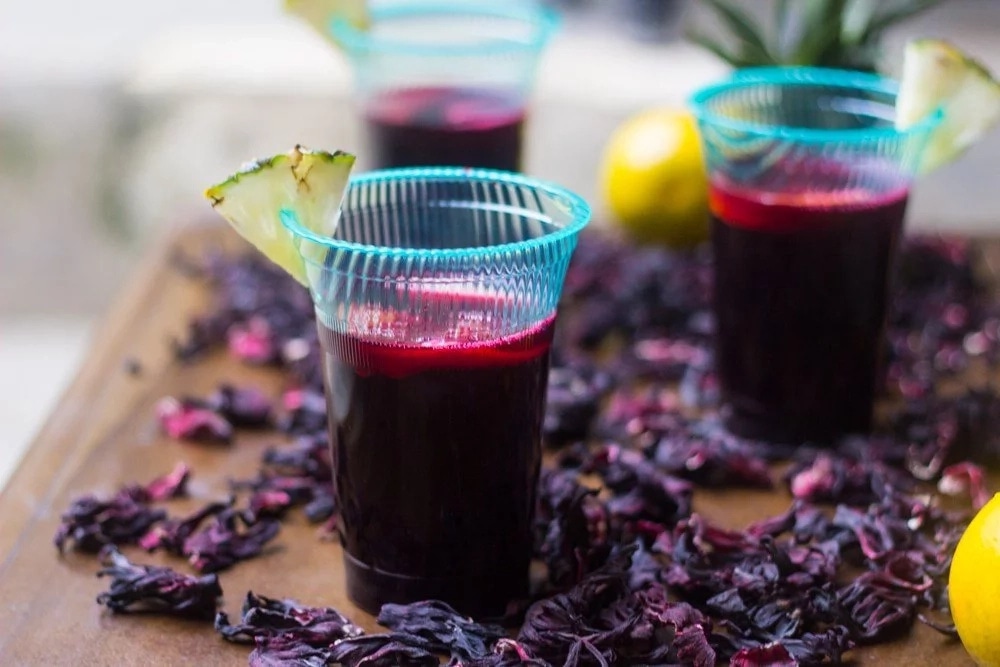Hibiscus also called Zobo in Nigeria is a popular plant mainly grown in the tropics and the northern part of the country.
Many people all over the country enjoy taking a drink made from the fleshy red leaves of the plant. The drink is ruby red in colour and has a sour taste, with a flavour similar to cranberry.
- Beware of COVID-19 third wave, PTF tells Nigerians
2 dead, 160 hospitalised as strange disease spreads in Kano
It is also used to make soup called ‘Miyar taushe’ in the north states of the country.
A pharmaceutical microbiologist and biotechnologist, Gurama A. Gurama, said the plant also known as Sabdarrifa or Roselle holds a lot of benefits for the health.
He said the leaves contain antioxidants and are caffeine free, adding that it is used in medicine for the prevention of bladder infections and constipation.
He said it is also used to reduce high blood pressure and hypertension.
He said, “The leaves can be dried, crushed and packed for future use. It can also be spiced with honey, pineapple or ginger to give a sweet taste and flavor.
“Zobo can be used for juice, jam, jelly and more, of recent, it has been used in pharmaceutical laboratories to produce antibiotics, drugs and other chemicals.
“The health benefits include its ability to treat high blood pressure, high cholesterol, the digestive and immune system, and inflammatory problems as well.
“It helps with liver diseases and reduces the risk of cancer. It can also speed up the metabolism and help in healthy, gradual weight loss. It is rich in vitamin C, minerals, and antioxidants and helps in the treatment of hypertension and anxiety.”
Managing blood pressure
According to Gurama, consuming zobo lowers the blood pressure in pre-hypertensive and mildly hypertensive adults.
A study conducted by Dr. Shu’aibu Isa from Gombe state University suggests that it has antihypertensive and cardioprotective properties, which can be beneficial for people suffering from hypertension and those at high risks of cardiovascular diseases, he said.
Lowers cholesterol
He said it also helps in lowering the levels of (bad) cholesterol from the body, “thereby helping to protect against heart diseases and protecting blood vessels from damage. The hypolipidemic and hypoglycemic properties of Zobo can be beneficial for those who suffer from blood sugar disorders like diabetes.”
Liver diseases
Gurama said research studies have also suggested that the antioxidant properties of Zobo also helps in treating liver diseases.
He said,“Antioxidants help protect your body from diseases because they neutralize the free radicals present in body tissues and cells. Zobo could increase your lifespan by maintaining good overall health as said by the CEO Biraj Zobo drink Gombe, Dr. Hanifa AJ.”
Anti-cancer properties
Another benefit according to the expert is that it contains anti-cancer properties
“Zobo contains hibiscus protocatechuic acid which has anti-tumour and antioxidant properties. Hibiscus slows down the growth of cancerous cells by inducing apoptosis, commonly known as programmed cell death as described in ‘Science Of Food By Gurama’,” he added.
He explained that other benefits of Zobo are that it is an anti-inflammatory and antibacterial agent , relieves menstrual pain and is also an antidepressant agent.
He said, “It is rich in ascorbic acid, also known as vitamin C, an essential nutrient required by your body to boost and stimulate the activity of the immune system. It is also used to treat discomfort caused by fever, due to its cooling effect as said by Dr. Yusha’u is his book titled ‘Basic Microbiology’.
“The health benefits of hibiscus include relief from cramps and menstrual pain. It helps in restoring hormonal balance as well, which can reduce the symptoms of menstruation like mood swings, depression, and overeating as explained by ‘Dr. Gombalandi’.
“Hibiscus contains vitamins and minerals like flavonoids which have antidepressant properties. Consumption of hibiscus can help calm down the nervous system, and it may reduce anxiety and depression by creating a relaxed sensation in the mind and body as said by Jabir Hamza Adam.”

 Join Daily Trust WhatsApp Community For Quick Access To News and Happenings Around You.
Join Daily Trust WhatsApp Community For Quick Access To News and Happenings Around You.

